There’s an old curse: “May you live in interesting times.” And boy, did 2020 prove why it’s such an awful thing to wish on somebody.
On paper, 2020 was 12 months, just like any other year. But let’s be real, it felt more like a decade, at least. January was a lifetime ago, back before social distancing, Zoom parties and entire countries shutting down. Those times are but a distant memory, with photos of maskless crowds like relics of a time long past. The biggest story at the beginning of the year – the impeachment of President Donald Trump – was just the first chapter in the epic saga that has been 2020.
The year was pretty terrible for just about everybody but Jeff Bezos. But as always, some people still managed to land some victories in this terrible, horrible, no good, very bad year. Though don’t worry, some other people probably had an even worse 2020 than you did. And that’s what landed them here, on City & State’s Winners and Losers of the (very unusual) Year.
WINNERS
Andrew Cuomo
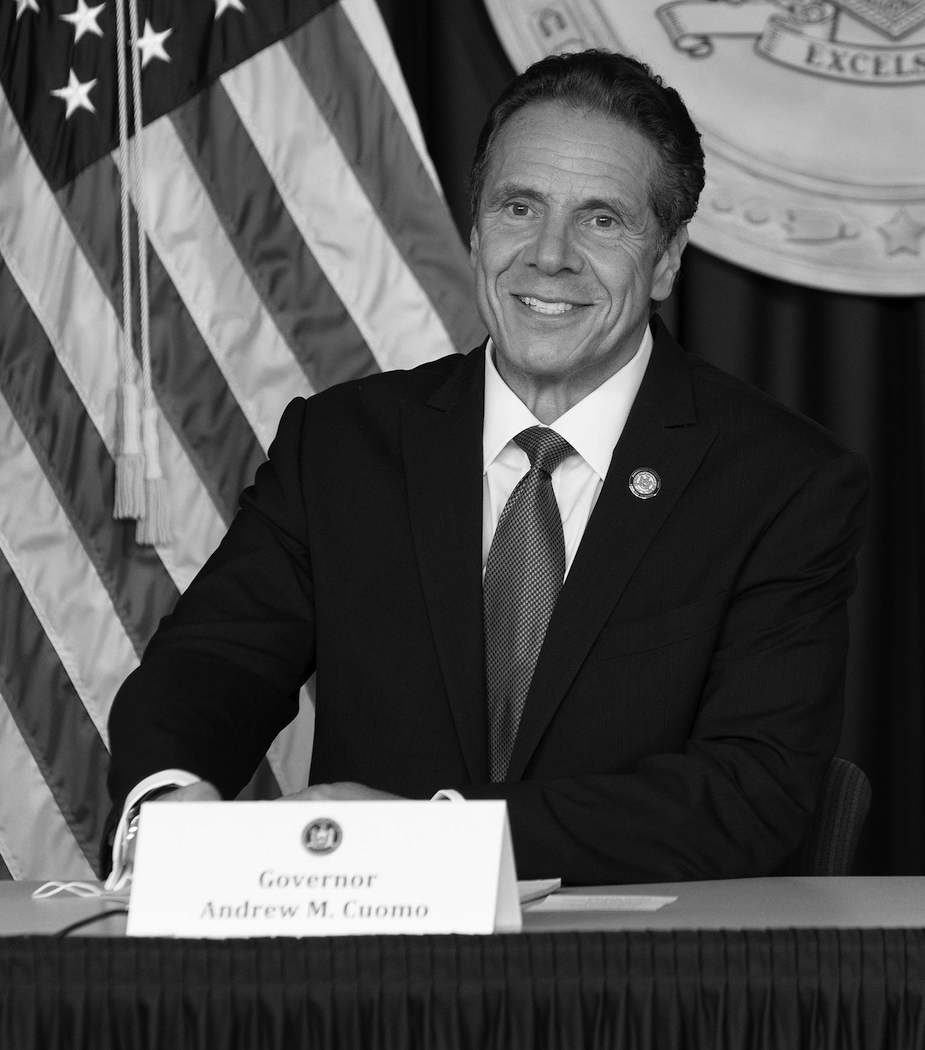
At the beginning of 2020, the governor seemed to be succumbing to the much-feared curse of the third term. His approval ratings were underwater. Pesky progressives were challenging him more than ever in the halls of the state Capitol. A massive state budget deficit loomed. Then COVID-19 struck. Less politically astute leaders might’ve leaned on the experts to help them deal with a deadly pandemic and present the facts to the people. Not Cuomo. Even his criticsliked that a micromanager like him wanted to step up. It might’ve looked relatively easy to get state legislators to overwhelmingly approve legislation granting him the power to rule by decree for the duration of the emergency, but good luck doing it yourself.
It was the worst and the best of times. Hundreds were dying every day. There was widespread fear that the coronavirus would overwhelm the hospital system. Tough decisions had to be made. Many of those made by the governor would be called into question later, but not too many naysayers were piping up when “bending the curve” was the daily goal. Gubernatorial briefings became must-watch TV. #President Cuomo was trending. A petulant president was helping Cuomo’s approval rating rocket to the stratosphere. Conservatives were saying he was doing a bang-up job, and talk began of a dark horse candidacy for the 2020 Democratic presidential nomination. New normal indeed.
Not everything worked out for the governor in the end. Republicans went back to demonizing him. Cuomosexuals on the political left moved on to other kinks. Not everyone liked how the governor incorporated his artistic aspirations into his professional work. The state budget deficit is bigger than ever and the coronavirus is staging a comeback. But now he has an Emmy, a best-selling book and a buddy headed to the White House. Pretty good ending for a New York Tough kind of year – though we’ll see where these new allegations of a toxic workplace and sexual harassment (which the governor’s office denies) take things in 2021.
Jamaal Bowman & Nicole Malliotakis
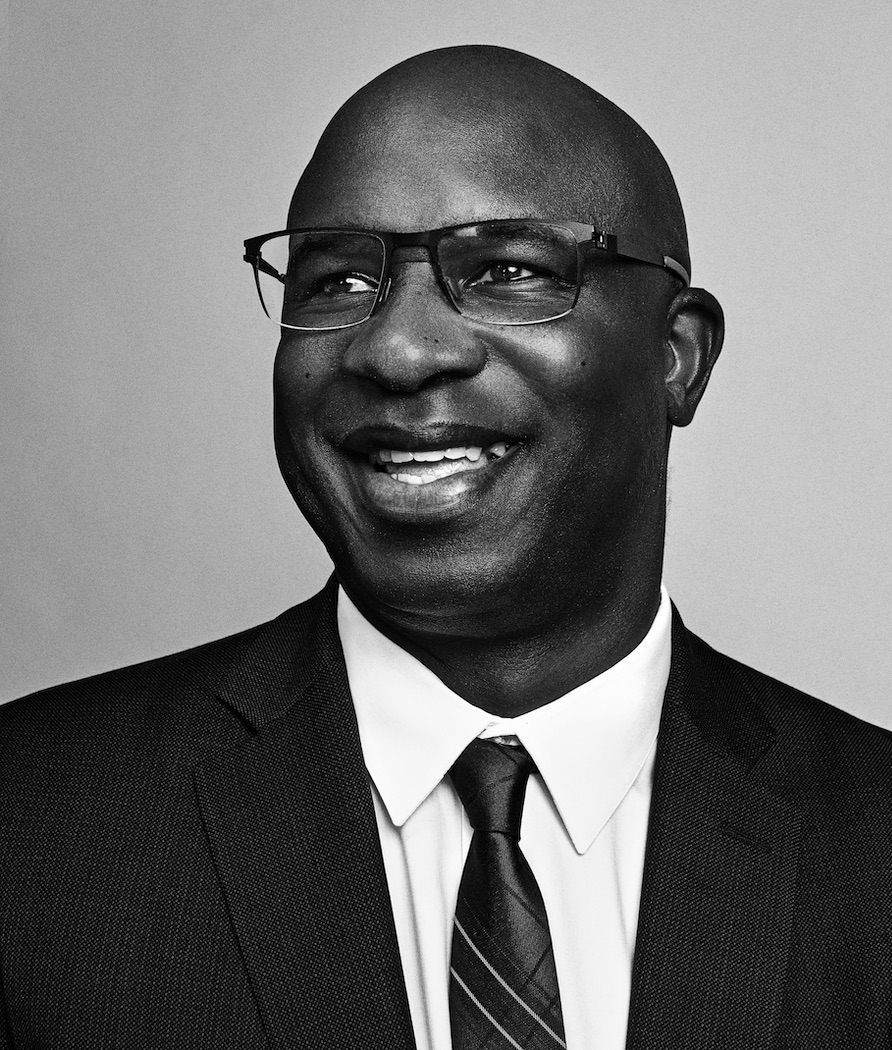
Out with the old, in with the new. These two incoming members of Congress are the only ones in New York to have successfully unseated an incumbent representative. Jamaal Bowman's victory was particularly noteworthy, as he not only beat the powerful 30-year incumbent Rep. Eliot Engel during in the June primary, he won with a solid 15 percentage-point lead. The middle school principal from Yonkers – who is getting into politics for the first time – proved that a progressive upset isn't out of reach for candidates other than AOC, even in the suburbs of New York. And Engel did himself no favors throughout the race, getting slammed in the media for staying away from his district early on in the pandemic and getting caught on a hot mic at a press conference saying, "If I didn’t have a primary, I wouldn’t care." On the flip side, Republican Nicole Malliotakis' success seemed more likely, given that she was running against a freshman Democrat in Trump-loving Staten Island. But her victory still represents a big boost for her political profile. Going from an unsuccessful run for mayor and a powerless tenure in the Democratic-led state Assembly to becoming the sole Republican in the New York City’s congressional delegation is nothing to sneeze at. And she’s already positioned herself as an antidote to progressive politics, saying she could form an “anti-socialist squad” in Congress.
Andrea Stewart-Cousins
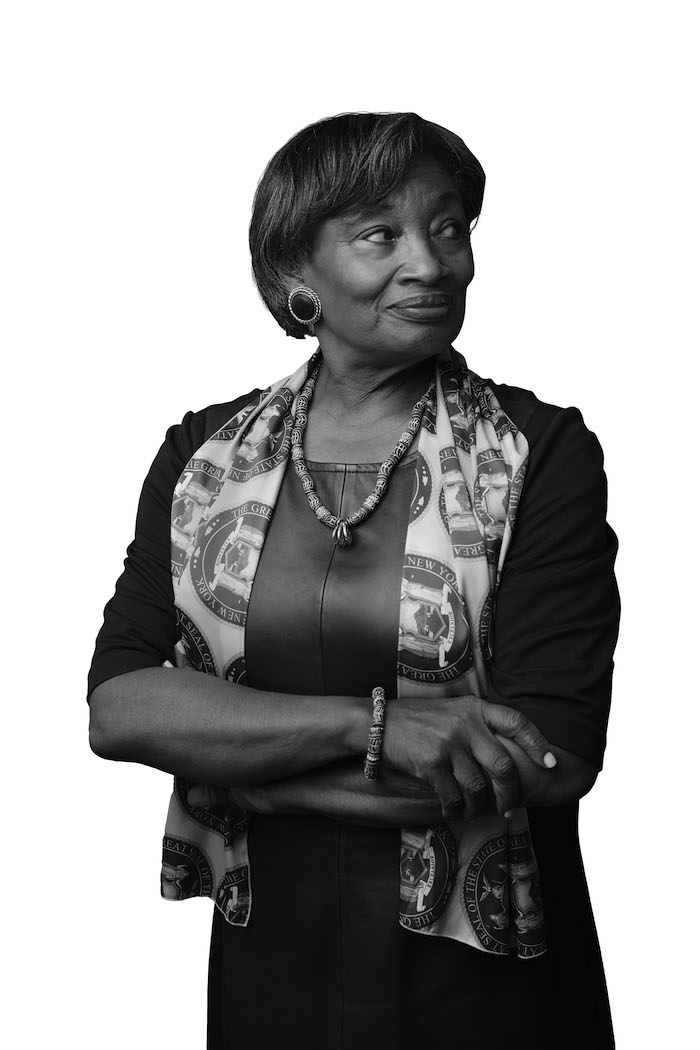
Underestimate the state Senate majority leader at your own peril. Not only does she have the biggest state Senate conference in practically forever, she has a long history of making her critics look pretty foolish. This includes flipping five longtime Republican districts upstate during the 2020 elections despite millions of dollars spent by the GOP to make Democrats pay for all the progressive reforms they’ve passed since she took command of the chamber two years ago. Believe it or not, the election results suggest voters actually like the new limits on cash bail, police reform, tenant-friendly rent laws, abortion rights, and efforts to prevent climate change from becoming yet another man-made disaster in the state. You might even say that the first Black woman in state history to lead a legislative conference knows a lot more about getting things done than the old boys’ club that used to run the show. Things aren’t always easy with a sometimes unwieldy Democratic conference, but Stewart-Cousins’ members just can’t stop professing how much they love having someone in charge who unites them behind a common cause. We’ll have to wait and see where that leads in the upcoming year, once testy issues like the budget, marijuana legalization and criminal justice reforms could once again tax party unity, but Stewart-Cousins has shown more than once that the era of Democratic dysfunction is long gone in Albany.
NYC-DSA

Socialism is alive and thriving in New York, infuriating the Republican minority and centrist Democrats alike. The New York chapter of the Democratic Socialists of America proved this year that it wasn’t just a one-hit wonder, securing another seat in Congress and four more seats in the state Legislature, unseating several longtime incumbents in the process. Two years after AOC’s historic victory, Rep.-elect Jamaal Bowman, state Sen.-elect Jabari Brisport, and Assembly Members-elect Marcela Mitaynes, Phara Souffrant Forrest and Zohran Mamdani won with the support of a new generation of left-leaning voters – and that’s not even counting Emily Gallagher and Jessica González-Rojas, a couple of DSA members who won without the organization’s endorsement – further deepening the far-left blue streak in New York politics. And for the first time, powerful establishment politicians are taking their young, inexperienced challengers seriously. In years past, candidates may have scurried away from the “socialist” label, but suddenly, it seems like all these young candidates can do is win.
Black Lives Matter protesters
[[{"fid":"13411","view_mode":"default","fields":{"format":"default"},"type":"media","field_deltas":{"8":{"format":"default"}},"attributes":{"style":"width: 333px; height: 500px;","class":"media-element file-default","data-delta":"8"}}]]
Black Lives Matter was a prominent social justice movement long before this year, but in 2020, protests against systemic racism and police brutality took on a new force. Following the killings of Black people by police this spring – including George Floyd in Minneapolis and Breonna Taylor in Louisville, Kentucky – protesters took to the streets across the country, demanding justice: the arrests of the officers involved and wide-scale reform of local police departments. In New York, overwhelmingly peaceful protesters turned out not only in all five boroughs, but large and small cities and towns across the state. Though the movement’s calls for change weren’t answered in their entirety, the state passed a series of police reform measures, including a repeal of 50-a, a provision that kept police personnel records secret, while New York City passed its own measures, including a law banning police chokeholds, and diverted some funds from the NYPD. But organizers say New York still has a long way to go. Activists are calling for more substantial cutbacks to police budgets and for additional reforms, such as limiting police involvement in responding to individuals experiencing mental health crises. While protests have died down since this summer, the Black Lives Matter movement will continue to shape New York policy into the future. “We’re quiet, but we’re not asleep,” Anthonine Pierre, a spokesperson for Communities United for Police Reform, told City & State this fall.
LOSERS
Donald Trump & Rudy Giuliani
[[{"fid":"13410","view_mode":"default","fields":{"format":"default"},"type":"media","field_deltas":{"7":{"format":"default"}},"attributes":{"style":"height: 333px; width: 500px;","class":"media-element file-default","data-delta":"7"}}]]
Over and over again this year, native New Yorker President Donald Trump has made massive missteps, and his personal attorney, former New York City Mayor Rudy Giuliani, has completely fumbled his response to them – whether it was Giuliani shouting about alleged voter fraud in the presidential election as hair dye or some other mystery liquid seeped past his temples, or before that, when Giuliani held a press conference at a landscaping company clearly mistaken for the Four Seasons luxury hotel chain, where he began ranting about various conspiracy theories and undermining the president’s legal strategy. The list goes on. Yet despite all of his blunders, Giuliani has remained a major part of Trump’s legal team.
Trump, on the other hand, has made even worse decisions this year (and yes, that includes keeping Giuliani on staff). The president failed to create a cohesive response to the COVID-19 pandemic and helped fuel mistrust in the U.S.’s health care system, jeopardizing public safety. The president encouraged protests against state coronavirus restrictions, despite warnings from public health experts not to do so. He also attempted to convince the public that he was the true victor of the presidential election and filed several lawsuits alleging that ballots were fraudulently cast – widely criticized for being devoid of any real evidence and hinging on the word of some outrageous star witnesses. Now, as the Trump presidency comes to a close, Giuliani has reportedly been begging for a preemptive pardon – though he has disputed this claim. And Trump himself is facing an extraordinary number of investigations once he leaves his post at the White House. Lucky for him, he’s got a guy willing to represent him, so long as he’s willing to pony up $20,000 a day.
Andy King
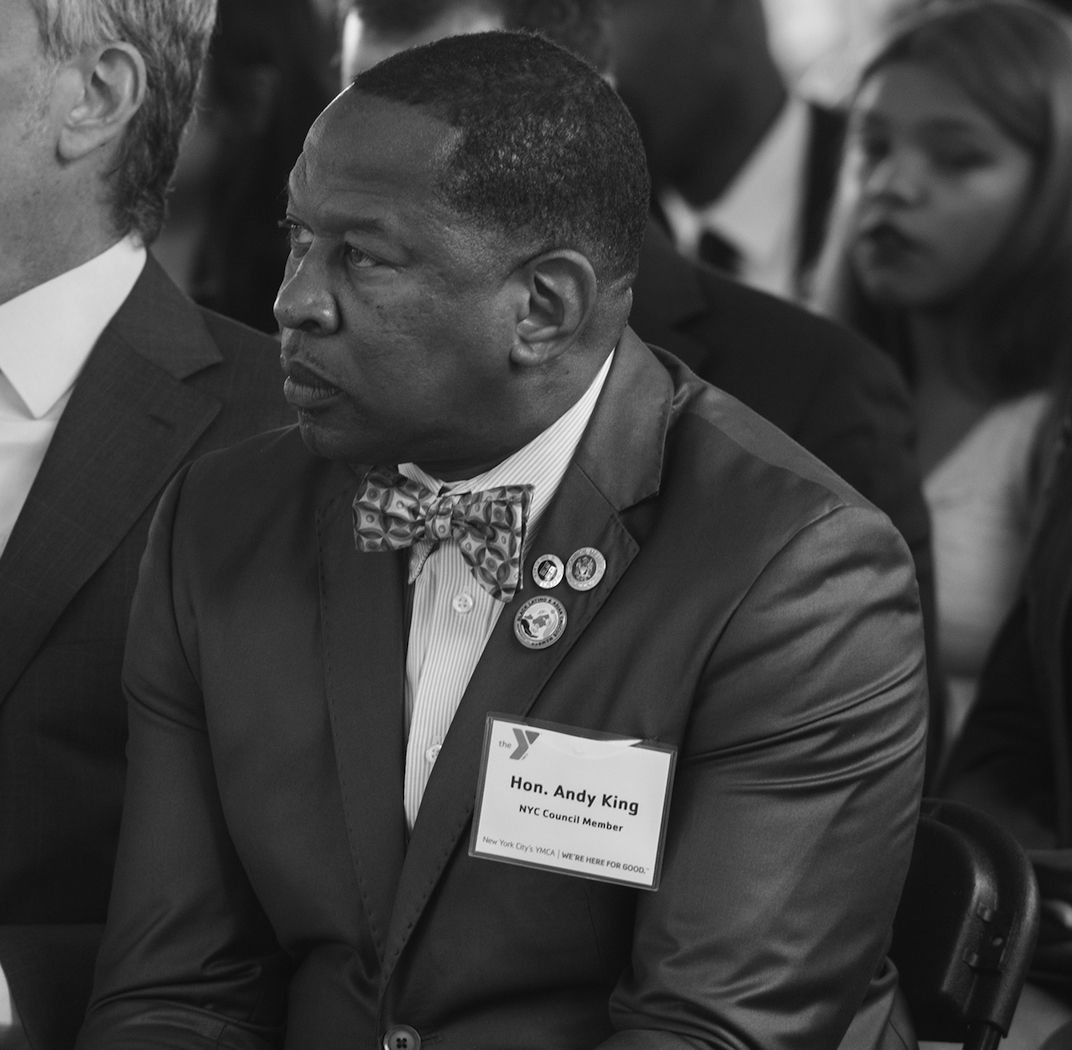
He was given a second chance – and blew it. The former New York City Council member made this same list last year, when he became the first city lawmaker in memory to be suspended from the City Council. He’d reportedly harassed staffers, made offensive comments and retaliated against anybody who cooperated in an investigation. Oh, and he also used public funds for a family wedding in the Virgin Islands. But that’s all in the past! This year, King made history once again when he was the first city lawmaker in memory to be EXPELLED from the City Council. Turns out King basically ignored his punishment from the year before, sidelining the office monitor and never paying his fine. He reportedly retaliated against staffers – again – and when he gave an aide a generous bonus, he demanded a $2,000 kickback. King showed no remorse and denied or rationalized everything until the very end, but his fellow council members had seen enough, and kicked him to the curb for good.
Bill de Blasio
[[{"fid":"13408","view_mode":"default","fields":{"format":"default"},"type":"media","field_deltas":{"5":{"format":"default"}},"attributes":{"style":"height: 333px; width: 500px;","class":"media-element file-default","data-delta":"5"}}]]
When the book is written on how New York City Mayor Bill de Blasio managed the crises of 2020 (and unlike a certain governor, he’ll have the sense not to write it himself), it very well may start on Saturday night, May 30, when de Blasio defended the New York City Police Department officers who drove their SUVs straight into Black Lives Matter protesters in Brooklyn. Yes, the mayor soon walked it back, but that shocking night was emblematic of how a man who once might have joined the protesters in the streets ended up on what felt like the wrong end of a national argument about police brutality – and a staff who refused to stand behind him. This year, one of the hardest in the city’s history, de Blasio found himself mayor of the one place in the country, maybe the world, most afflicted by the coronavirus. No leader could have avoided the pandemic, but there’s general agreement that an earlier serious response (“If you love your neighborhood bar, go there now”) and more decisive action (Will schools close or won’t they?) could have lessened the death toll and saved New Yorkers from nervous breakdowns. The mayor who thought he could be president-elect now can’t even get his wife elected borough president, and he’s spent the year billions of dollars in the hole, desperately asking for help from Washington leaders who would rather forget all about him. Many New Yorkers feel the same way.
Robert Ortt, Pamela Helming
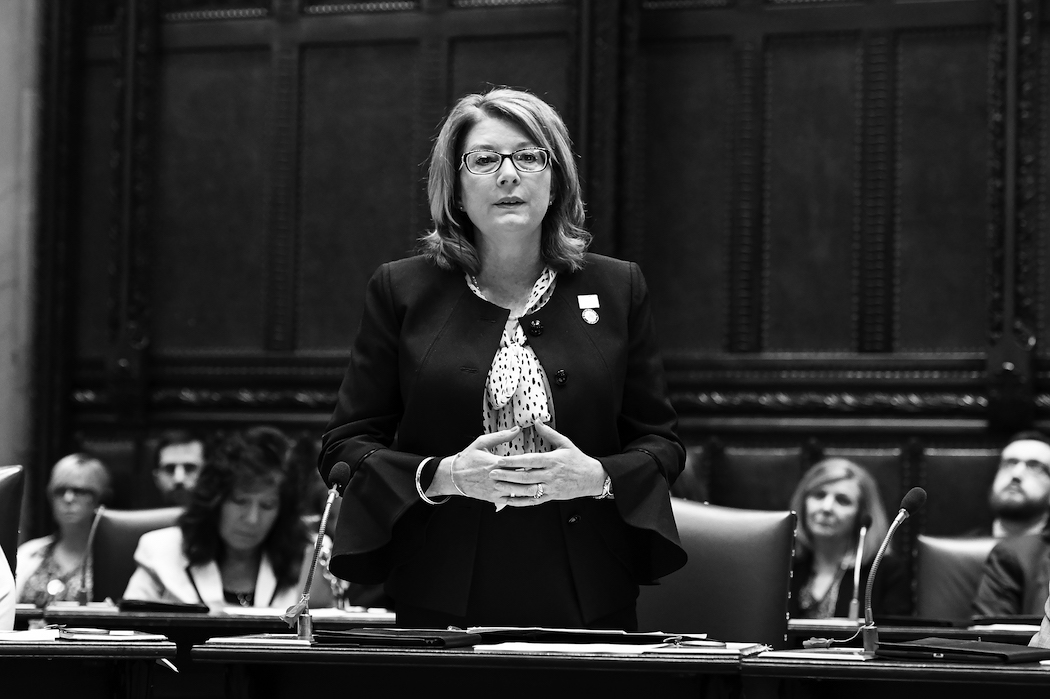
The political pendulum was unexpectedly swinging back towards the Republicans in early 2020. Some among them even thought that they had a chance to regain a significant chunk of the ground they’d lost in the state Senate to the Democrats in 2018. While the coronavirus pandemic sucked months’ worth of political oxygen away from the 2020 campaign, the biggest civil unrest in decades gave Minority Leader Robert Ortt and state Senate GOP Campaign Committee Chair Pamela Helming an opening to make Democrats pay for all those progressive reforms they enacted over the past two years. Sure, the libs had money to work with, but the Republicans had the cops on their side and, as the campaign reached the final stretch, millions in campaign cash through a super PAC funded by conservative donor Ronald Lauder. The super PAC made the same case President Donald Trump was making nationwide about mythical antifa super-criminals run amok. Election night results made it look like the strategy worked, but a deluge of left-leaning absentee ballots meant Democrats ended up picking up seats and scoring their supermajority that cuts the GOP out of the legislative redistricting process. If there is a next time for Ortt and Helming, they might want to wait until all the votes are counted before declaring victory – though we all know who was the brains behind that idea.
La’Ron Singletary
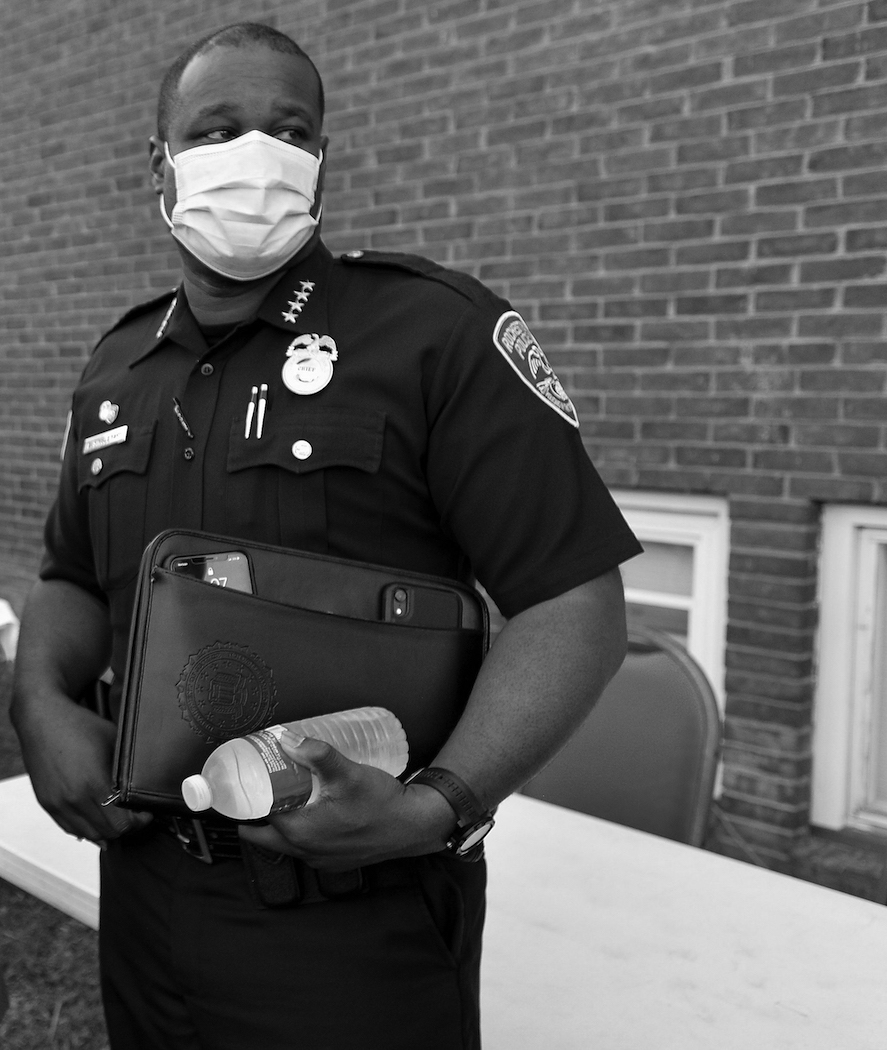
As protests against police brutality continued across the nation at the end of the summer, sparked by the killing of George Floyd in Minneapolis, some news came out of Rochester on Sept. 2. A Black man, naked at the time of his arrest and experiencing a mental health crisis, had been suffocated to death by police. And what’s more, Daniel Prude died two months before Floyd, yet his death only hit the papers when his family publicly released body camera footage that showed police covering Prude’s face with a hood and kneeling on his back. The similarities to Floyd’s death were chilling, and that it took months for details to emerge sparked outrage. People made accusations of a cover-up. Police treated the death like a drug overdose, despite the medical examiner’s conclusion otherwise, and kept quiet about it for months. At the center of the outrage was then-Police Chief La’Ron Singletary and Mayor Lovely Warren. One weathered the backlash, the other didn’t. After a week straight of protests, Singletary abruptly announced that he would retire, along with the entire command staff. But the situation worsened when the city released a trove of documents that bolstered the claims of a cover-up. Among apparent evidence of a concerted effort to keep details of Prude’s death private, a top deputy in the police department suggested in a June email to Singletary that going public with Prude’s death might cause “potentially violent blowback” as protests against police brutality rocked the nation. Singletary’s response? “I totally agree.” In light of the new information, Warren fired Singletary before his scheduled retirement. He reportedly learned of the decision on social media.
Editor's note: This post was updated to include allegations of sexual harassment made against Gov. Andrew Cuomo shortly after this story was published. His office has denied the allegations.
NEXT STORY: This week’s biggest Winners & Losers


